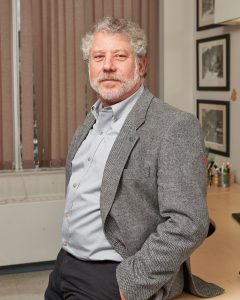Virtual incubator trains entrepreneurs to bounce back from COVID

An innovative virtual incubator created by entrepreneurship expert Benson Honig is helping women whose careers have suffered during the pandemic turn their skills to community-minded entrepreneurship. (Shutterstock photo)
BY Sonia Verma
November 6, 2020
An innovative virtual incubator created by an entrepreneurship expert from the DeGroote School of Business is helping women whose careers have suffered during the pandemic turn their skills to community-minded entrepreneurship.

Professor Benson Honig, the Chair in Entrepreneurial Leadership, received a two-year COVID-19 grant to provide women with virtual training in entrepreneurial skills that will allow them to get back on their feet and support community growth, inclusion, and social well-being all at once.
“We’re asking, what can COVID-19 allow you to do that you couldn’t do before?” says Honig, who co-created and co-founded the incubator with longtime research collaborator Ana Siqueira, a management professor at William Paterson University in New Jersey.
“A lot of businesses were launched in depressions or recessions. If you can make it work under those circumstances, everything after that will be easy.”
What it is
The ingenuity incubator is an online community and toolkit that provides aspiring entrepreneurs with peer-reviewed research and training on creativity, innovation and entrepreneurial skills.
Many people, especially women who work in service-based industries, are struggling because the pandemic has closed so many businesses and severely limited in-person interaction, Honig explains.
Unlike a brick-and-mortar innovation incubator, all resources are online at reframery.org, making it more cost-efficient and agile.
Benson Honig: Easing the transition for refugees and their new neighbours
How it works
The ingenuity incubator has two components, Honig explains:
Social entrepreneurship: All the tools are based on research and on the principle of combining ingenuity with community business.
“We want people who will say, ‘I want to make money, but I also want to invest in my community and help it develop and prosper,’ ” Honig says. He and Siqueira have focused years of research on “the bottom of the pyramid,” that is, small, local entrepreneurs. “And they always want to give back to their community.”
Community currency: A way of trading locally so that money stays in the community rather than flowing out of it, community currencies have proved successful in promoting local growth.
“Once people agree to use it, let’s say I pay someone with the community currency, they use it to pay their babysitter, who will pay for a meal with those dollars,” Honig explains. “The money doesn’t go into a bank, it doesn’t go to Toronto or Ottawa — it stays here in the community.”
Honig’s team is working with two teams from McMaster’s Faculty of Engineering to develop a secure digital community currency, something that will promote growth while also allowing businesses to flourish in an online ecosystem.
What’s unique about it
“No one has thought of putting blockchain on community currency, and no one has thought of doing that together with a virtual incubator,” Honig says. “But because of COVID-19, we’re developing ingenuity — using our own ingenuity.”
Another unusual thing about the incubator is that every single tool in the toolkit has its basis in evidence-based research.
“Every time you click on something on our site, there are research articles to support what we say,” Honig says. “It is shaped by idealism and a sense of community, but it’s also built entirely on a foundation of evidence-based research, not pie in the sky or our instincts.”
Why it matters
The ingenuity incubator is creating a community of women focused on building stronger, sustainable communities for the long haul.
“Maybe it’s time for a different type of capitalism,” Honig says.
“It’s not dog eat dog: It’s people who give back, who focus on issues like the environment, on community development, on addressing inequality.”
What’s next
Honig and Siqueira’s Reframery team plans to publish two e-books, which they hope to distribute free, to help others create similar projects. Honig also wants to take this work to parts of Africa and other regions, where there’s an immense need and capacity for social enterprise.
And if the blockchain community currency takes off, “it’ll be a game changer for social enterprise everywhere,” he says.
Why they do it
Honig sees the project as an incredible experiential learning opportunity for his students. “It’s what university should be about,” he says. “We need to bring the world into the classroom and the classroom into the world, and that’s exactly what this does.”
As for Honig himself, he and Siqueira, both professed idealists, have written books and published dozens of papers on community enterprise. “Finally, we have the opportunity to turn it into action,” he says. “We can do something to help them in a meaningful, pragmatic way.”
“I also think we’re public servants. I’m paid by your tax dollars,” he points out.
“I should be able to give back to my community — to Hamilton, or Canada, or the world. All of us have that responsibility. I’m doing my job and I love it.”


